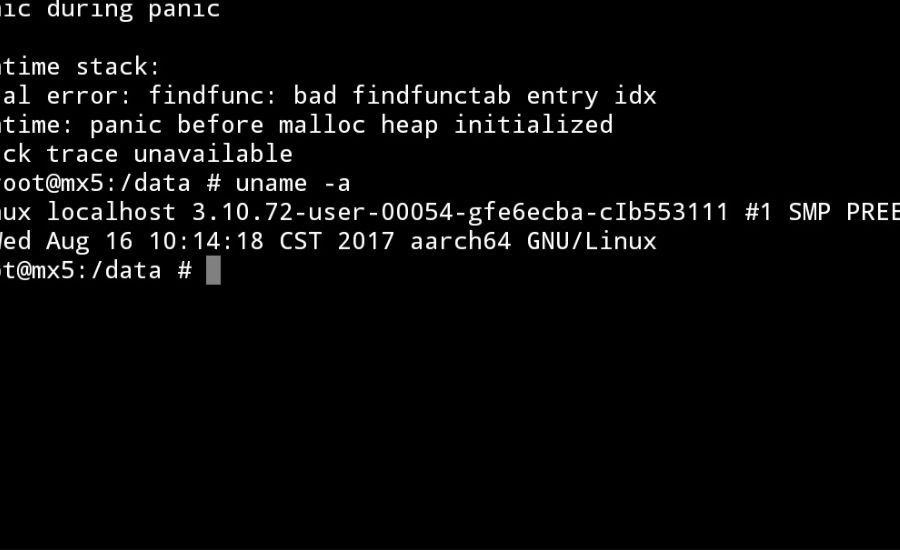Introduction to Wang Suicide Prevention Jennika Cardenas
Suicide prevention remains a vital public health problem, with specialists like Wang and Jennika Cardenas at the vanguard of developing impactful solutions. Their advocacy centers on building robust guide networks, presenting important assets, and employing evidence-based totally strategies to decrease suicide hazard. Through a mixture of realistic interventions and network-pushed initiatives, they paintings tirelessly to equip people with the essential tools to manage intellectual fitness struggles and find out pathways to recuperation and wish.
This article delves into the considerable contributions of Wang and Jennika Cardenas to the sphere of suicide prevention. It highlights their roles, explores crucial principles, and emphasizes the importance of their efforts in fostering a compassionate and effective response to this complicated trouble. We can even take a look at actual-world packages, the demanding situations they face, and the solutions they champion to pressure significant trade inside the realm of suicide prevention.
By information the technique recommended with the aid of Wang and Cardenas, it becomes clean that tackling suicide requires a comprehensive and multidimensional approach—one that now not simplest addresses immediate hazard but also fosters lengthy-time period mental health nicely-being within groups.
Suicide Prevention: The Impact of Wang and Jennika Cardenas

Introduction to Wang and Jennika Cardenas
Wang and Jennika Cardenas are outstanding leaders in suicide prevention, committed to addressing the growing intellectual fitness crisis. Their paintings combines proof-primarily based techniques with community-driven efforts to lessen suicide rates and sell properly-being. By specializing in early intervention, intellectual health schooling, and the destigmatization of intellectual health problems, they’ve become crucial advocates for high-quality trade. Their projects assist individuals, families, and groups discover danger factors, intrude effectively, and create a supportive surroundings for mental fitness care.
Wang’s Research-Driven Approach to Suicide Prevention
Wang’s approach to suicide prevention is rooted in research and records analysis. By analyzing demographic tendencies and danger elements, Wang is able to enforce focused strategies that are proven to work. His paintings involves collaboration with schools, healthcare structures, and local businesses to establish early caution systems and help systems. This studies-based model makes a speciality of spotting signs and symptoms of misery early and offering timely intervention to reduce suicide threat. His practices emphasize a multi-disciplinary technique, drawing at the knowledge of mental fitness specialists, educators, and network leaders.
Jennika Cardenas’ Community-Centered Prevention Strategies
Jennika Cardenas is renowned for her grassroots approach to suicide prevention, which emphasizes building strong, supportive networks within communities. Cardenas advocates for accessible mental health resources and the importance of educating the public on recognizing the early signs of distress. Her approach is centered on encouraging open conversations about mental health and empowering individuals to support one another. By training community members to respond effectively to mental health crises, Cardenas fosters a proactive, inclusive culture of support that prioritizes prevention over intervention.
Core Elements of Their Suicide Prevention Strategies
Identifying Risk Factors and Early Intervention Both Wang and Cardenas prioritize the identification of risk factors that can indicate suicidal thoughts or behaviors. By recognizing early warning signs, such as sudden behavioral changes or withdrawal from social activities, families and communities can offer crucial support before a crisis escalates. Early intervention ensures that individuals at danger receive the care they want in a timely way.
Creating Support Networks Support networks are key to keeping intellectual fitness and stopping suicide. Wang and Cardenas emphasize the significance of growing strong networks within families, buddy businesses, and groups. These networks serve as a safety internet for people, providing emotional and sensible aid when wished most. Encouraging people to are looking for help and build connections in times of crisis is an critical component of their strategy.
Educational Outreach and Training Education plays a important position in each Wang and Cardenas’ strategies. Through workshops, seminars, and hands-on education, their initiatives train individuals how to identify intellectual health warning signs and symptoms and offer guide. These educational efforts intention to growth mental health literacy, assisting communities understand when a person is struggling and the way to provide appropriate help.
Combating Mental Health Stigma Mental fitness stigma may be a great barrier to looking for help. Both Wang and Cardenas paintings to lessen this stigma with the aid of selling open talk about intellectual health troubles. Their efforts aim to create environments in which individuals experience secure reaching out for help with out worry of judgment. By normalizing mental fitness struggles, they encourage a lifestyle of compassion and knowledge.
Why Their Work is Essential
The work of Wang and Cardenas is critical in the fight against suicide and mental health challenges. By focusing on both individual and community-wide prevention strategies, their efforts help foster a culture of care and support. Their work emphasizes that suicide prevention is a shared responsibility, where proactive intervention, education, and reducing stigma can collectively make a significant impact on suicide rates.
Benefits of Their Suicide Prevention Strategies
Raising Mental Health Awareness Through public education and outreach, Wang and Cardenas increase mental health awareness. This allows individuals to better understand mental health challenges and recognize distress in themselves and others. Their work encourages people to seek help early, preventing potential crises.
Expanding Access to Support Resources Their initiatives highlight the importance of accessible mental health resources. By improving public knowledge of available support systems, they empower individuals and communities to access the help they need. This accessibility is essential for decreasing suicide prices and assisting the ones in disaster.
Building Stronger Communities Communities with sturdy, nicely-installed assist networks tend to experience better intellectual fitness consequences. Wang and Cardenas’ community-based totally approaches assist reinforce those networks, making it simpler for people to connect to others and find support. This creates resilient groups that are better equipped to handle mental health challenges.
Reducing Suicide Rates Through targeted interventions and the introduction of strong guide structures, their techniques have contributed to a decline in suicide rates. By focusing on prevention and early intervention, Wang and Cardenas’ work has brought about measurable improvements in public health.
Empowering Individuals and Families Wang and Cardenas’ packages equip individuals and families with the information and gear had to navigate intellectual fitness demanding situations. This empowerment fosters resilience, assisting individuals and their loved ones manage mental health troubles successfully.
Real-World Applications of Their Strategies
School-Based Programs Schools play a essential function in suicide prevention, in particular for more youthful populations. Wang’s collaboration with instructional establishments has caused the improvement of faculty-primarily based mental fitness packages. These packages teach college students a way to pick out mental health issues, are seeking for help, and guide their peers. This creates a safe surroundings in which college students feel comfortable discussing intellectual fitness worries.
Community Workshops Jennika Cardenas has pioneered community workshops focused on suicide prevention. These workshops are open to everyone and provide valuable training on recognizing warning signs and offering support. As a result, communities are better equipped to handle mental health crises effectively.
Digital Campaigns Wang and Cardenas have utilized social media platforms to raise awareness and reduce stigma surrounding mental health. Their digital campaigns share personal stories, provide resources, and encourage open dialogue about mental health. These efforts assist normalize intellectual fitness struggles and make it less complicated for people to talk approximately their reports.
Healthcare Collaborations Wang’s collaboration with healthcare companies has ended in protocols to assist scientific experts discover suicide threat factors. By training healthcare people to apprehend early warning signs and symptoms, hospitals and clinics are better prepared to provide assist to people susceptible to suicide.
Peer Support Networks Both Wang and Cardenas emphasize the significance of peer help networks. These networks, composed of people who’ve skilled mental fitness struggles, offer a safe area for human beings to connect, percentage reviews, and provide mutual aid.
Challenges and Solutions

Stigma Around Mental Health Mental health stigma frequently discourages people from in search of help. Wang and Cardenas address this project through encouraging open conversations in schools, offices, and groups. Sharing personal tales facilitates reduce stigma and creates a extra accepting environment.
Limited Resources In many groups, intellectual health sources are scarce. Cardenas advocates for the introduction of nearby help companies and peer networks that provide reachable mental health care in underserved regions.
Early Identification of At-Risk Individuals Identifying at-chance individuals may be difficult. Wang and Cardenas promote education that helps individuals recognize early signs of distress, enabling them to provide timely support.
Responding to Crisis Situations Effective crisis intervention requires specific skills. Wang has developed training programs that equip community members, teachers, and healthcare workers with the necessary tools to respond to mental health crises.
Cultural and Socioeconomic Barriers Cultural and socioeconomic factors can impact individuals’ willingness to seek help. Wang and Cardenas work to overcome these barriers by creating culturally sensitive programs that address the unique needs of diverse communities.
In conclusion, the efforts of Wang and Jennika Cardenas in suicide prevention are vital for building a more supportive, proactive society. Their focus on early intervention, community engagement, and reducing stigma is helping to save lives and promote mental health well-being.
Understanding Suicide Prevention: The Work of Wang and Jennika Cardenas
Suicide prevention targets to reduce the threat of suicide by using addressing the mental, emotional, and social factors that make a contribution to suicidal thoughts. It makes a speciality of fostering defensive elements, including sturdy social connections, get right of entry to to mental fitness care, and coping mechanisms, to beautify resilience and decrease suicidal behavior.
Introduction to Wang and Jennika Cardenas
Wang and Jennika Cardenas are devoted advocates for suicide prevention, every contributing precise strategies. Wang has included intellectual health support inside various community services, making help greater accessible. Jennika Cardenas specializes in early intervention and outreach, selling proactive measures to deal with intellectual health worries before they escalate. Together, they emphasize a holistic approach that tackles both man or woman and societal factors influencing suicide prevention.
Core Concepts in Suicide Prevention
Effective suicide prevention includes knowledge numerous key concepts:
Risk Factors: Conditions consisting of intellectual contamination, trauma, and social isolation that growth the chance of suicide.
Protective Factors: Elements that lessen hazard, together with strong aid networks, get entry to to care, and coping abilities.
Early Intervention: Identifying mental fitness issues before they grow to be crises.
Crisis Intervention: Immediate assistance for people in distress to save you self-damage.
Community Support: Building networks of own family, friends, and neighborhood companies to provide ongoing guide for at-chance people.
Why Suicide Prevention is Essential
Suicide is a main motive of demise globally, impacting people and families across all backgrounds. Suicide prevention efforts, which include those championed by Wang and Cardenas, aim to lessen stigma, improve get entry to to mental health care, and provide tools for dealing with emotional distress. These tasks no longer only keep lives but also create supportive groups wherein people sense cushty seeking help with out fear of judgment.
Benefits of a Community-Based Approach
A community-focused method to suicide prevention has many advantages:
Increased Accessibility: Localized assets make seeking help easier for people.
Stronger Support Networks: Communities with near-knit relationships offer emotional assist during tough times.
Reduced Stigma: Engaging in open conversations approximately intellectual fitness reduces disgrace, encouraging help-in search of conduct.
Early Detection: Community participants skilled to understand symptoms of misery can intervene before crises enhance.
Key Components of Effective Suicide Prevention
Successful prevention programs include these core elements:
Education and Awareness: Informing the public about mental health and suicide risk factors.
Support and Counseling Services: Providing hotlines, counseling centers, and peer support networks.
Training for Intervention: Equipping community members and professionals with the skills to identify and respond to warning signs.
Access to Mental Health Care: Ensuring mental health services are affordable and available to all individuals.
Wang and Cardenas’ Contributions
Wang’s Role: Wang works with local organizations to ensure mental health support is easily accessible within familiar, safe environments, making it easier for individuals to seek help.
Jennika Cardenas’s Approach: Cardenas focuses on early intervention, advocating for training programs that teach community members, teachers, and health professionals to recognize distress signals. She also organizes community seminars and support groups to create safe spaces for open mental health discussions.
Real-World Applications and Case Studies

School-Based Programs: Wang’s initiatives have integrated mental health support into schools, providing students with counseling, workshops, and peer support groups. These programs promote coping skills and reduce stress early on.
Community Workshops: Cardenas has led workshops teaching community members to recognize the signs of suicide and provide support. These efforts build informed networks that can help reduce suicide rates in local communities.
Summary:
Suicide prevention is a critical public health issue, and leaders like Wang and Jennika Cardenas are playing an essential role in developing effective strategies to address it. Both advocates focus on creating comprehensive, community-driven approaches to reduce suicide rates by prioritizing early intervention, building strong support networks, and reducing mental health stigma.
Wang’s Approach: Wang emphasizes research-driven strategies, collaborating with schools, healthcare systems, and local organizations to establish early warning systems and support networks. His approach is centered on recognizing early signs of distress and providing timely interventions, ensuring that individuals receive the care they need before crises escalate.
Jennika Cardenas’ Approach: Cardenas is known for her grassroots, community-centered strategies. She advocates for open discussions on mental health and the importance of education, training community members to recognize mental health issues and respond effectively. Her work aims to create a culture of support by empowering individuals and communities to proactively address mental health concerns.
Core Elements of Their Strategies: Both Wang and Cardenas emphasize identifying risk factors early, creating strong support networks, and educating the public on recognizing distress. Their strategies focus on fostering resilience and helping communities provide emotional and practical support for individuals facing mental health challenges.
Real-World Applications: Wang’s initiatives include school-based mental health programs, while Cardenas leads community workshops to train people on how to recognize and respond to signs of suicide. Their digital campaigns and healthcare collaborations further promote awareness and encourage individuals to seek help without fear of stigma.
Challenges and Solutions: Despite their impactful efforts, challenges such as mental health stigma, limited resources, and cultural barriers remain. However, Wang and Cardenas are tackling these issues through education, community engagement, and increasing accessibility to mental health services. Their work is crucial in creating a proactive society where mental health struggles are met with compassion and support.
In conclusion, Wang and Jennika Cardenas’ contributions to suicide prevention highlight the importance of a holistic, community-based approach. Their work empowers individuals and communities to take proactive steps toward reducing suicide risk and fostering mental well-being.
For more Information About blog visit Shortthink













Leave a Reply